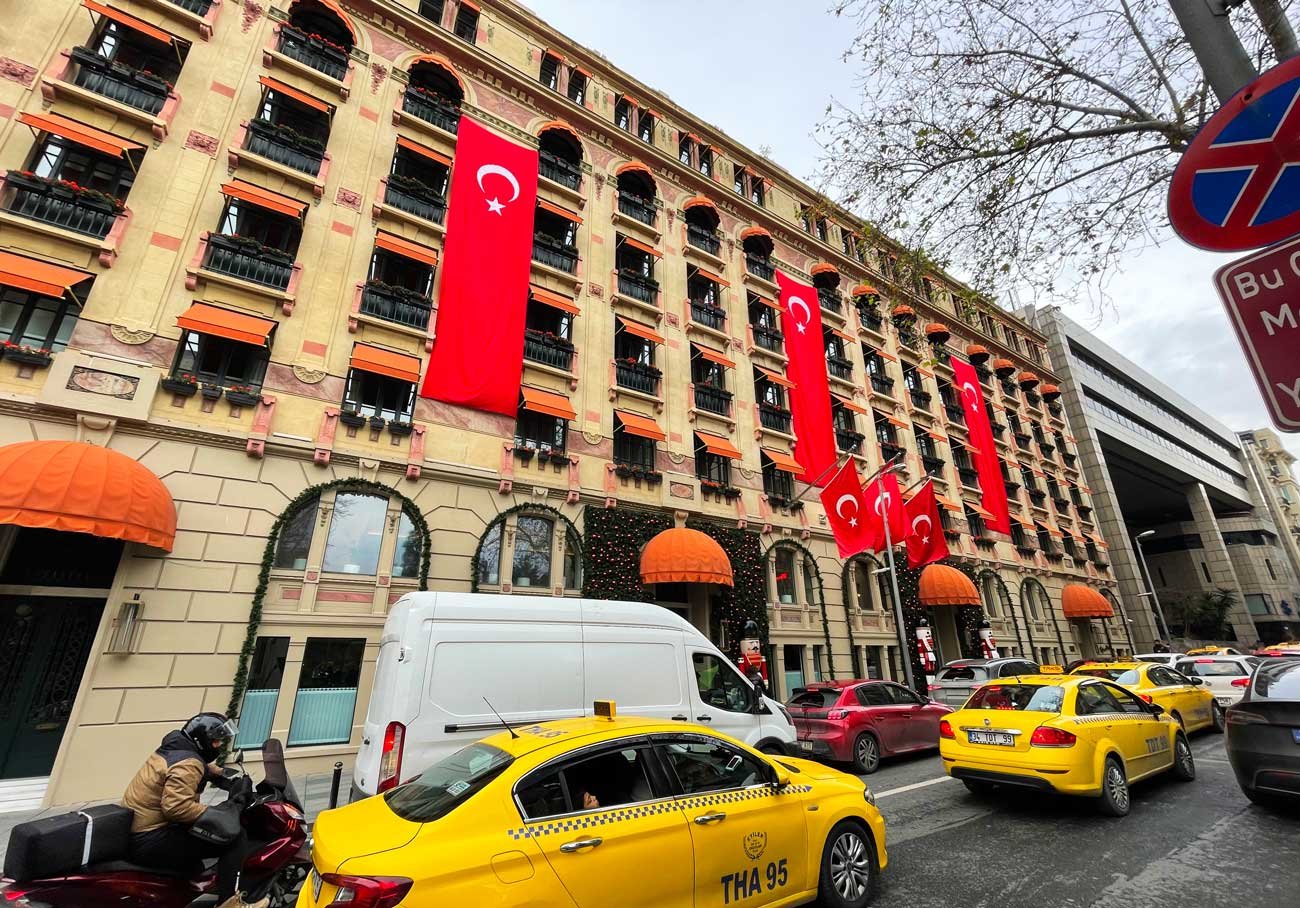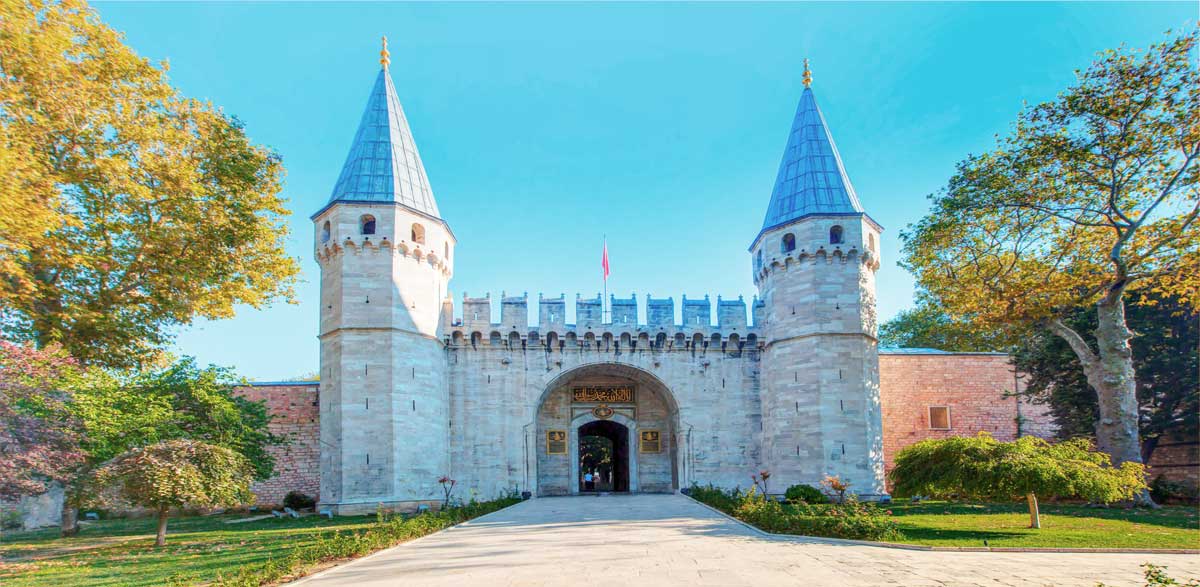Before we traveled to Turkey, our relatives expressed concerns about the ongoing wars in neighboring countries, earthquakes, and recent terrorist attacks. Although we didn’t have all the details, we could understand their concerns.
Perhaps you have the same question: “Is it safe to travel to Turkey?”
Many visitors have reported feeling safer in Turkey compared to the neighboring countries in the region. The safety level is comparable to that of many other places in Europe.
This attitude among tourists shows in the numbers with over 45 million visitors to Turkey in 2019 (Source: Statista). Compare that to the 8.6 million visitors to Australia, 22.1 million visitors to Canada, and the 31.3 million visitors to neighbouring Greece in 2019.
Although the tourism industry in Turkey was initially affected by the pandemic and the number of tourists decreased, it is now recovering and experiencing renewed growth.
Key takeaways
Turkey is a safe country to visit as a foreigner. This is reflected in that fact that there were over 45 million visitors to Turkey in 2019.
As with any country which you are not familiar with, always have extra caution when visiting.
You should be aware of the safety risks that are unique to Turkey. In general, you should:
- Steer clear of the Syrian border
- Understand the natural disaster risks
- Know how to avoid common street scams in tourist areas
Places to avoid
Most of Turkey is safe, but we wouldn’t recommend traveling near the border of Syria and Iraq.
There are many refugees and immigrants in the south-east of the country. It remains safe to travel around the northern areas.
If you’re visiting one of the big cities like Istanbul, there are neighbourhoods that you should avoid. Chances are that a highly-rated hotel will not be located in an area that is unsafe. Check the reviews beforehand just to be sure.
Terrorism concerns
In Turkey, terrorism remains an ongoing concern due to various groups operating within the region. The most prevalent is the PKK – also known as the Kurdish People’s Congress – who have territorial ambitions on south-eastern Turkish and northern Iraqi territory.
Other terrorist elements include left-wing radicals and Islamic extremists striving for their own separate agendas.
Fortunately, the government’s successful anti-terror operations have helped bring about an impressive reduction in terrorist activities.
Obviously, the busy tourist areas are more of a target for terrorist attacks. To counter this, local authorities have tightened security around tourist attractions and transportation hubs.
Is Turkey safe for women?
In general, Turkey is a safe country for women to travel in. As long as you take sensible precautions and follow local cultural norms, your experience should be a positive one.
The majority of Turkish people are friendly and welcoming towards visitors of all genders, although as with any destination there are certain areas where it’s best to exercise caution.
It’s important to be aware of your personal safety at all times – stay in well-lit areas at night, avoid walking alone after dark and do not accept unusual invitations from strangers.
There are no dress restrictions for women in Turkey, but it’s a good idea to dress more conservatively in small towns or rural areas to avoid unwanted attention.
When visiting mosques you’ll need to carry a scarf to cover your head otherwise you won’t be able to enter.
Can you talk about politics?
For foreigners, it’s best to steer clear of sensitive conversations revolving around politics.
If you are new to any country, it’s best to observe and learn before coming to any strong conclusions about how a country should run.
It’s important to know that Turkish law prohibits insulting Turkey, the Turkish ethnicity, the government and even Mustafa Kemal Ataturk – the founder of modern day Turkey. Penalties for this vary from fines to imprisonment.
Is it safe to drive in Turkey?
Comparatively, not many people drive a car in Turkey due to the expense of owning one. Even if you can afford it, you may choose not to drive once you see the traffic. Road rules can sometimes seem like a suggestion and taxi drivers are known to be aggressive, driving close to pedestrians and honking loudly.
Unless you’re an experienced driver used to crazy traffic, we’d recommend using public transport. Turkey has a great public transport system with multiple options such as the subway, trams, buses and ferries.
It’s important to be cautious when crossing the roads as cars won’t always stop at pedestrian crossings. Pedestrians don’t have the right of way in Turkey.
If you do decide to drive, take care on the roads, especially in remote, rural areas where the roads may be in poor condition. If you’re driving on roads between major cities however, you should be fine, as the roads are usually in great condition.
Is it safe to use taxis?
Taxis in Turkey are safe and a great way to get around. You can either hail a taxi on the street or download the Turkish taxi app – BiTaxi.
BiTaxi or Uber can eliminate most taxi scams as there is an approximate price and you can pay by credit card at the end. The price for a taxi ride is fairly reasonable.
In 2023, we were able to take a 10-minute taxi ride for around $5 USD. Most of the taxi drivers we experienced both in Istanbul and Izmir have been fine. They didn’t overcharge, were friendly and arrived within a few minutes of booking them on BiTaxi.
However, in Sultanahmet (a busy tourist area in Istanbul) we have had difficulty finding a taxi driver who would use the meter. This is a common tactic to rip-off tourists. Taxi drivers will tell you the meter is broken and use the traffic as an excuse to charge you an enormous fee.
If you find the driver is not using the meter, just ask to be let out and try to find another taxi.
A good rule of thumb is to ask the taxi driver if they will be using the meter before you get in the car. It’s a reasonable request as it’s actually illegal to not use the meter.
Scams
Aside from taxi drivers switching off their meter you may come across some other scams.
In the tourist areas of Istanbul you may be invited by a Turkish rug seller into their shop for cay (tea). They will try to persuade you to purchase a rug so it’s best to refuse their offer for tea. That is unless you actually want to buy a rug.
Another common scam is the free bracelet scam. You may be approached by a stranger on the street who has a string of beads or bracelets to give you as a gift. Once again it’s best to refuse this offer as they will usually ask you for money afterwards.
People on the street may ask for money and say it is for hospital bills or to feed their children. Some of these may be legitimate needs, but if they speak English fluently and look well-off, then it might be a scam.
If you want to donate money, there are reputable charities in Turkey who will guarantee your money gets to homeless people, the elderly, victims of earthquakes, etc.
Protecting your valuables
At cafes, we’ve noticed people leaving their laptops and phones at their tables when they went to the bathroom. There didn’t seem to be any worry about valuables being stolen.
Crime isn’t common in Turkey. However, if you’re in a busy tourist area in Istanbul like the Grand Bazaar, Sultanahmet or Taksim, then you may come across pickpockets.
We think it’s perfectly safe to leave your valuables in your apartment while you’re out. We were surprised on our first trip to Turkey at how big and heavy the front doors were on apartment buildings. All the ones we stayed in have had a double locking system and there were even bars on windows in apartments on the ground floor for extra security.
Can you drink tap water?
Although tap water is considered safe to drink in Turkey, people often drink bottled water in due to the taste of the water. Most locals either filter their water or have bottles delivered to their door regularly, although not everyone can afford to buy water.
When it comes to brushing teeth, everyone uses tap water.
Stray animals in Turkey
Cats are loved and you’ll see them on every street in Istanbul and Antalya. In Islam, cats are considered clean animals and perhaps that is at least partly why they are adored.
You’ll see boxes everywhere that locals leave out to keep the community cats warm in winter. People also leave out cat food and water trays on the street for them.
Most street cats are friendly, but as with anywhere, you do come across the occasional cat that will scratch you if you try to pat it.
It’s not just on the street you’ll see cats, but in cafes too. Cats often are invited inside and you can see them sleeping on chairs and even tables.
Dogs are everywhere too; some are more looked after than others. Occasionally you’ll have dogs come up and bark at you and it’s best to avoid them if they look aggressive. It’s not just cities where you’ll see stray dogs in packs, but also in most towns and villages. If you’re bitten, take yourself to the hospital or a GP, as rabies is present in Turkey.
Natural disasters
Turkey experiences a lot of seismic activity due to its location on fault lines. To protect yourself, it’s best to choose accommodation that meets earthquake standards. Old buildings are particularly vulnerable in the case of quakes so make sure you’re living in something modern and built to earthquake code.
On February 6th, 2023 a devastating magnitude 7.8 earthquake rocked the southeastern region of Turkey causing thousands of deaths and significant damage to infrastructure. While access to this area is now limited due to safety concerns, most cities in Turkey such as Istanbul, Antalya, Izmir and Ankara are still open for business with tourists welcome.
Turkey is earthquake prone. But it’s worth keeping in mind that so are a lot of countries: Japan, Indonesia, China, the Philippines, Iran, Peru, Italy and Mexico.
Are foreigners welcome?
Locals are friendly and welcoming, and children are very much loved in Turkey. Café owners will often give customers extra tea and treats with their meal.
Our toddler is always receiving small treats in Turkey, whether a strawberry from the fruit market, a cookie from a patisserie, a small doll from our real-estate agent or extra fries when we bought a doner kebab. We actually stopped buying her treats when we went out, because inevitably, she’d receive some along the way.
Some extra things you can do to stay safe in Turkey
- Learn some Turkish phrases
- Use secure WiFi when accessing banking information
- Don’t take drugs on your stay as it’s illegal
- Find out where your local embassy is located
Turkey is a very hospitable and welcoming nation and you’re sure to have an amazing experience while exploring the many cultural sites, monuments, and landmarks that the country has to offer.
With the right precautions and preparations, it is a safe place to visit.
For more information on travel safety and security in Turkey, check your home country’s official travel advice.

I’m a writer and graphic designer currently living in Turkey with my family. I enjoy learning language, great food (chicken kebab is a favourite at the moment) and experiencing places less-traveled.




